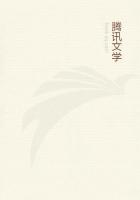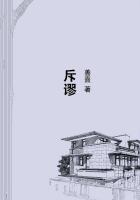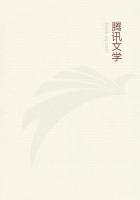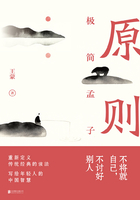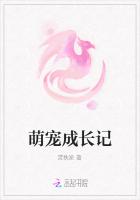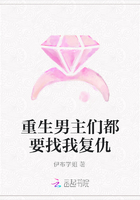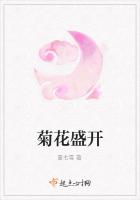(3.ix.9) The case would be exactly the same, if a seignorage existed. Suppose that 10 percent. were imposed as seignorage; it would be equally true, that the 100 pieces of gold; were theproportion changed, from 15 to 1, to 16 to 1; would purchase as much silver as would beexchanged at the mint for 1600 pieces of silver. While the market value or the two metals wasthe same as the mint value, one piece of gold purchased not only as much silver as wascontained in 15 pieces or silver, but one-tenth more; after the change which we have justsupposed, it purchases in the proportion of 16 to 15, that is, as much as wilt be contained in 16pieces, and a tenth more.
(3.ix.10) The use of silver coins, for the purpose of small payments, or change, as it is called,of the more valuable coins, if they are legal tender only to a small amount, is not liable to theobjections which apply to a double standard.
(3.ix.11) It has, indeed, been affirmed, that if they are issued, at a higher value than that ofthe metal contained in them, they will occasion the exportation of' the gold coins. But it is easy tosee that this is a mistake.
(3.ix.12) Suppose that our silver coins in this country are 10 per cent. above the value of themetal, but legal tender only to the extent of 40 shillings; every man, it is affirmed, has hence aninterest in sending gold to Paris to buy silver.
(3.ix.13) The relative value of gold to silver in Paris and England is naturally pretty nearlythe same; let its say as 15 to 1. An ounce of gold, therefore, will in Paris purchase 15 oz. of silver.
But so it will in England. Where then is the advantage in going to France to purchase it ?
(3.ix.14) You propose to coin it because it is 10 per cent more valuable as coin.
(3.ix.15) But 10 per cent. of it is taken from you, and hence to you the advantage of the highvalue is lost.
(3.ix.16) Your silver coins with 10 per cent. added to them would make the coins of fullweight.
(3.ix.17) Suppose the price of silver to have sunk below the mint proportion, it would thenbe your interest to pay in silver if you could; but you can only pay to the extent of 40 shillings; it istherefore worth nobody's while to surcharge the market.
(3.ix.18) Besides, government reserves to itself the right of refusing to coin silver, when itpleases; it can therefore retain it of a high value.
(3.ix.19) Subsidiary coins cannot send the standard coins out of the country, unless theincreased amount of them sink the value of the currency. The standard coins will not go in preference tobullion, unless they can be purchased cheaper than bullion.
Section X. Substitutes for Money (3.x.1) The only substitute for money, of sufficient importance to require explanation, in thisepitome of the science, is that species of written obligation to pay a sum of money, which hasobtained the appellation of paper money.
(3.x.2) The use of this species of obligation, as a substitute for money, seems to haveoriginated in the invention of bills of exchange, ascribed to the Jews, in the feudal and barbarous ages.
(3.x.3) When two countries, as England and Holland, traded with one another; whenEngland, for example, imported Dutch goods, and Holland imported English goods, the questionimmediately arose, how payment was to be made for them. If England was under the necessity ofsending gold and silver for the goods which she had brought from Holland, the expense wasconsiderable. If Holland was under the necessity of sending gold and silver to England, theexpense was also considerable. It was very obvious, however, that if there were two individuals,one of whom owed to the other 100 l., and the other to him 100 l., instead of the first man'staking the trouble to count down 100 l. to the second, and the second man's taking the sametrouble to count down 100 l. to the first, all they had to do was to exchange their mutualobligations. The case was the same between England and Holland. If England had to pay amillion of money to Holland, and had an equal sum to receive from Holland, instead of sendingthe money from England to Holland, it would save expence and trouble to consign to hercreditors, in Holland, the money due to her in Holland; and those merchants in Holland, whoowed money to England, and must have been at the expense of sending it, would be well pleasedto be saved from that expense, by obeying an order to pay, in Holland, what they owed to amerchant in England. A bill of exchange was, literally, such an order. The merchant in Englandwrote to the merchant in Holland, who owed him a sum of money, "Pay to such and such aperson, such and such a sum;" and this was called drawing a bill upon that person. Themerchants in Holland acted in the same manner, with respect to the persons in England, fromwhom they had money to receive, and to whom they had money to pay. When it so happened,that the money, which the two countries owed to one another, was equal, the payments balancedone another, and each country paid for the goods, which it had received, free, altogether, fromthe expense of transmitting money. Even when it happened that one of the two owed more thanit had to receive, it had only the balance to discharge, and was relieved from all the rest of theexpense.
(3.x.4) The advantage, therefore, derived from the invention and use of bills of exchange,was very considerable. The use of them was recommended by a still stronger necessity, at the periodof the invention, because the coarse policy of those times prohibited the exportation of theprecious metals, and punished with the greatest severity any infringement of that barbarous law.
(3.x.5) Bills of exchange not only served the purpose of discharging debts between countryand country, but very often acted as a substitute for money, in the country to which they were sent.


